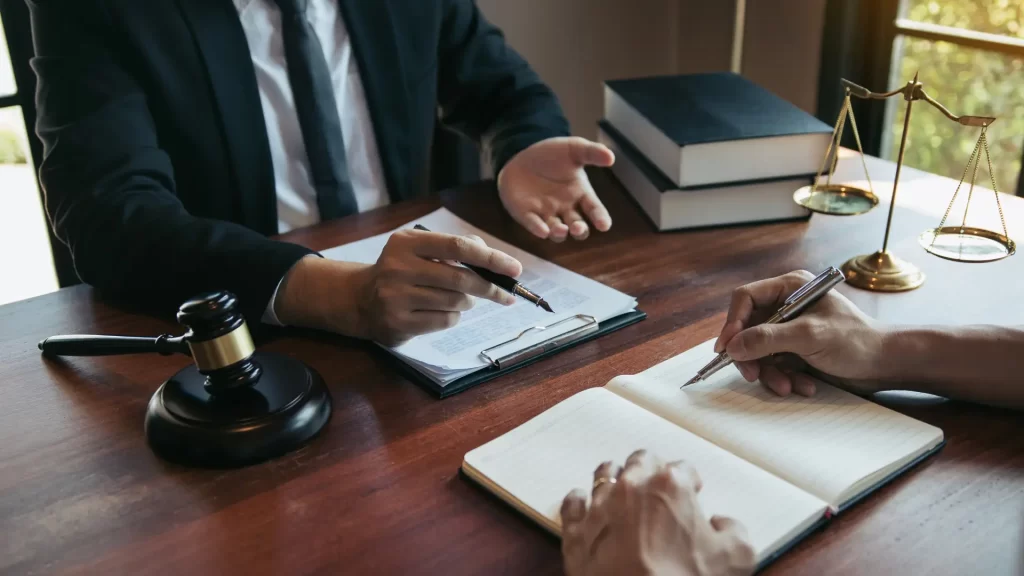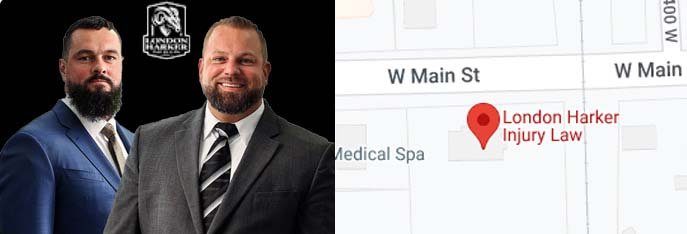Posted on Wednesday, May 1st, 2024 at 9:00 am

A deposition is pivotal in your personal injury case, offering an opportunity for you to tell your side of the story. This sworn testimony, given under oath and recorded for later use in court, can significantly influence the outcome of a case. However, how do you know if your deposition went well?
The experience of being deposed can be daunting, leaving you questioning your performance and the impact your testimony may have on your case. By recognizing the signs of a successful deposition, evaluating your performance, and seeking feedback from your legal team, you can gain valuable insights into the effectiveness of your testimony.
Preparing for Your Deposition
Preparation is one of the keys to being successfully deposed. Take these steps in advance of your deposition to feel confident:
- Review the facts of your case
- Rehearse answering questions with your lawyer
- Decide what you’ll wear ahead of time
- Make sure you know how to get to the venue so you can arrive calmly and on time
- Bring any required medications and lunch or a snack in case the deposition runs long
Signs of a Successful Deposition
Staying calm and composed during your deposition is crucial. Nervousness is natural, but maintaining your composure helps you think clearly and respond accurately. Deep breaths and measured responses can help you present yourself as a credible and expert witness and help you remember your answer.
Providing clear, concise, and truthful answers is equally important. Avoid giving long-winded responses or adding unnecessary information. Stick to the facts and answer only what is asked to maintain reliability and prevent contradictions.
Consistency in your statements is vital. Ensure your answers align with any previous statements you’ve made, as the opposing party’s counsel can try to exploit inconsistencies to undermine your credibility.
If you’re worried about forgetting your answers when everyone is focused on you, there are some things you can do to prepare. Practice questions with your lawyer or a friend so you feel confident heading into the deposition. Review your case details beforehand to help you stay consistent. Additionally, listen carefully to each question posed during the deposition process and pause before giving your answer. Don’t hesitate to ask for clarification if a question is unclear. This careful listening demonstrates your commitment to providing accurate testimony.
Positive Indicators During a Legal Deposition
Several positive indicators can signal that things are going well during your deposition. Minimal objections from your attorney may suggest that the opposing attorney’s questions are relevant and appropriate.
If opposing counsel tries to ask the same question in a variety of different ways, they may be trying to get you to change the way you answer that question. If you can withstand this tactic and stick to your original answer, that’s a positive indicator. However, if you stray from your original response, the defense attorney may think they found a hole in your story, and they will ask clarifying questions to try to hurt your credibility.
Finally, your attorney’s satisfaction with your performance strongly indicates success. If your attorney appears pleased with how you handled the deposition, it’s a good sign that you have met expectations and provided solid testimony. Always contact your attorney for detailed feedback on how your deposition went and areas where you can improve, so you’ll have that relevant information if your case proceeds to trial and you must testify.
Evaluating Your Performance in a Deposition
How do you know if your deposition went well? Reflecting on your preparation and understanding of the case is the first step in evaluating your deposition performance. Consider how well you knew the details and facts beforehand. Assess your ability to handle challenging questions. Think about how you responded to tough or unexpected queries and whether you stayed composed under pressure. Also, consider your demeanor and professionalism throughout the process. Were you calm, respectful, and confident?
Feedback After a Personal Injury Deposition
To get the best opinion about how you did, discuss your performance with your attorney. They can provide specific feedback on what you did well and areas where you might improve for future depositions or trials. This feedback helps you understand the strengths and weaknesses of your testimony, allowing you to see what aspects were compelling and where you might have faltered. Your attorney can advise you about which responses were most effective and why.
How Lawyers Assess Deposition Effectiveness
For lawyers, how do you know if your deposition went well? Lawyers assess your deposition’s effectiveness by analyzing your testimony’s impact on your case and whether it strengthens or weakens your claim. They evaluate your credibility and consistency as a witness, looking for any discrepancies or strong points in your statements. They also determine the need for additional evidence or witness testimony to support your case further. Additionally, they assess the opposition’s strategy and potential next steps, determining how your deposition testimony might help or hinder their strategies. This comprehensive evaluation helps your legal team build a stronger case.
Dealing with a Deposition That Went Bad

You can recognize the signs of a deposition that didn’t go as well as you and your lawyer would have liked. If you felt flustered or provided inconsistent answers, these are indicators that the deposition might not have gone as planned. If you guessed at some answers, or if you lost your temper or became emotional, that might show that your deposition wasn’t entirely successful.
Try to develop a post-deposition strategy with your attorney immediately. This might involve gathering additional evidence, corroborating statements, or preparing for potential challenges in court.
Key Takeaways for a Successful Deposition in Sandy, Utah
How do you know if your deposition went well? Staying calm and providing clear, honest, and consistent answers are critical indicators of the success of a deposition. Preparation, honesty, and open communication with your legal team are crucial for a favorable outcome. If you have a personal injury case, seeking experienced legal representation can make a significant difference in its outcome.
At London Harker Injury Law, our dedicated Sandy and Provo personal injury attorneys are here to guide you through the legal process, protect your rights, and advocate for the compensation you deserve. Call us today at 77CARCRASH to schedule a consultation and learn how our firm can help you navigate the complexities of personal injury law.



